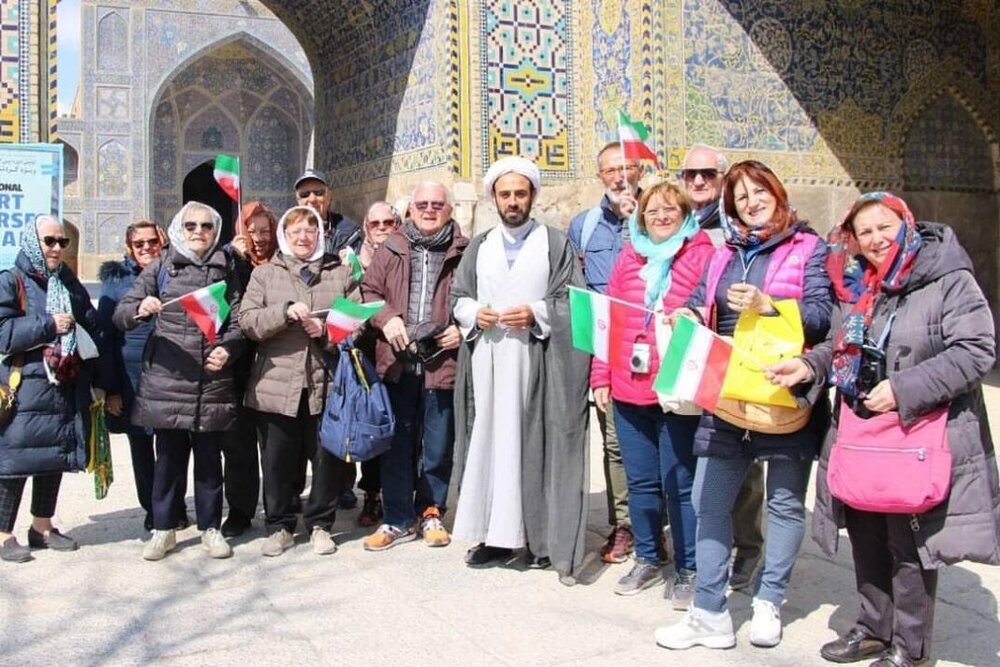Tourism seen as effective tool against Iranophobia: ICESCO official

TEHRAN – The contribution of tourism and the hospitality industry is an effective tool to foil anti-Iranian sentiment or Iranophobia, which has long been forged and spread by some Western governments, an ICESCO official has said.
When holidaymakers arrive in Iran, they feel the real face of the country so tourism is a great instrument to help thwart Iranophobia and Islamophobia sentiments, Abdolkarim Sadeqdoust said on Thursday.
“Through a correct introduction of Iran, we can stand against anti-Iran propaganda,” said the official who presides over the ICESCO office in Iran.
In this regard, Tehran is getting ready to host the 1st edition of the Islamic World Tourism Exhibition (IWTE) aimed to turn the spotlight on lesser-known destinations in 15 countries including the Islamic Republic.
Sightseeing tours, ecotourism centers, medical tourism, and pilgrimage are the main themes of the exhibit, which will be held at Shahr-e Aftab International Exhibition Center from June 7 to 10.
Some experts believe Iran is still somehow “unknown” to many potential travelers due to such a “media war”. “Iran’s tourism is grappling with some challenges, on top of those Western ‘media propaganda’ aimed at scaring potential travelers away from the Islamic Republic.”
Long shunned by Western travelers, the Islamic Republic has steadily stepped-up efforts to use tourism, over the past couple of years, to help promote its international image battered by endless opposition mostly from the U.S.
A backpacker’s dream, Iran holds vast potential as a holiday destination with stunning landscapes, numerous World Heritage sites, and above all, its hospitable people.
The country is often portrayed as “one of the safest to travel” by most visitors who experienced it, particularly solo female travelers and families, and the Lonely Planet calls its people the “friendliest in the world.”
“My advice is: don’t believe what you hear on the news. Explore the place, talk to locals and come to your own conclusions. Come to Iran with an open mind and I guarantee you’ll make many great friends in Iran,” Polish traveler Anna Karsten wrote in her travelogue in 2020.
“To me, being uncomfortable once or twice doesn’t mean that the place is dangerous. I never once felt physically threatened, unsafe, or at risk, even when I was wandering the streets of Iran. I felt safer in Iran than if I was walking around in NYC. Even the tap water was safe in Iran!”
Ellis Veen, a cultural anthropologist from the Netherlands who has traveled for more than 20 years to over 50 countries along the ancient Silk Road, says: “After my visit to Iran one of the most frequent questions I got is whether it was safe for me to travel to Iran as a woman. My short answer would be yes and I would recommend Iran to anyone considering it.”
“Iran is one of the safest countries in the Middle East (West Asia) and Iranians are among the friendliest people I have met in my travel history.”
It's no surprise for those who are aware of Iranian culture and the great hospitality its people are famous for. Iranians are traditionally generous hosts giving the best of what they have to their guests. In traditional Iranian culture, guests are cherished like precious jewels. It is here in Iran that a typical invitation for a cup of tea can be extended to an overnight stay, or a humble asking for directions may forge a warm friendship.
In the realm of medical tourism, many domestic experts believe it is a win-win opportunity both for the country and foreign patients, as they are offered affordable yet quality treatment services and the country gains considerable foreign currency.
Amongst Iran’s trump cards are the presence of credible surgeons and physicians, cutting-edge medical technologies, high-tech medicine and diverse specializations, super affordable procedures, and finally its hospitable people. The Islamic Republic has set goals to exceed its yearly medical travelers to around two million in [calendar year] 1404 (March 2025-March 2026).
The ICESCO, which stands for the Islamic World Educational, Scientific and Cultural Organization, is a specialized organization that operates under the aegis of the Organization of Islamic Cooperation (OIC) and is concerned with fields of education, science, culture and communication in Islamic countries to support and strengthen relations among member states.
AFM
